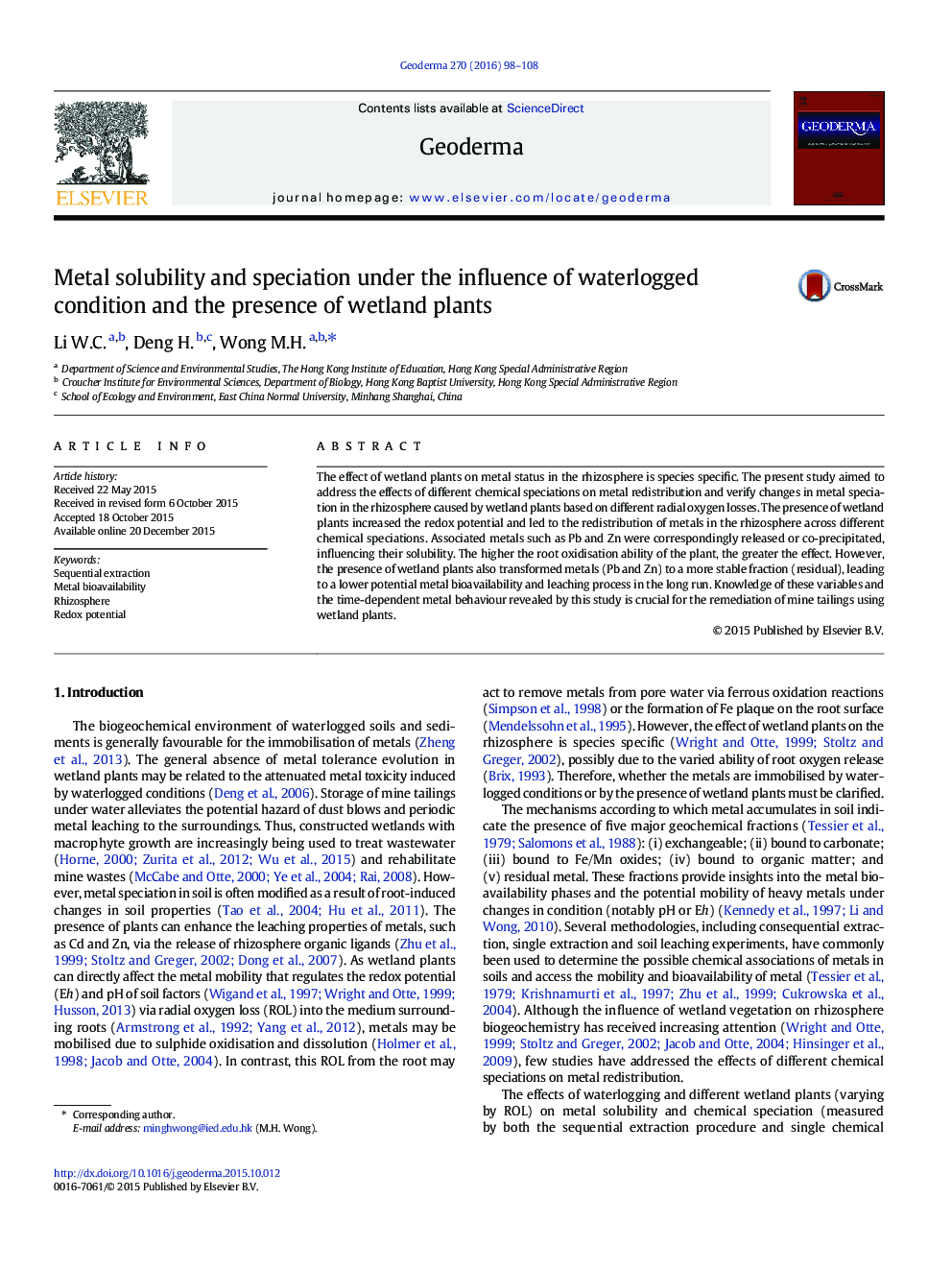| Article ID | Journal | Published Year | Pages | File Type |
|---|---|---|---|---|
| 4572962 | Geoderma | 2016 | 11 Pages |
•Wetland plants increased redox potential leading to metal redistribution.•The higher the root oxidising ability, the greater the effect might be imposed.•Wetland plants could transform metals (Pb and Zn) to a more stable fraction.•Wetland plants could lower potential metal bioavailability and leaching.
The effect of wetland plants on metal status in the rhizosphere is species specific. The present study aimed to address the effects of different chemical speciations on metal redistribution and verify changes in metal speciation in the rhizosphere caused by wetland plants based on different radial oxygen losses. The presence of wetland plants increased the redox potential and led to the redistribution of metals in the rhizosphere across different chemical speciations. Associated metals such as Pb and Zn were correspondingly released or co-precipitated, influencing their solubility. The higher the root oxidisation ability of the plant, the greater the effect. However, the presence of wetland plants also transformed metals (Pb and Zn) to a more stable fraction (residual), leading to a lower potential metal bioavailability and leaching process in the long run. Knowledge of these variables and the time-dependent metal behaviour revealed by this study is crucial for the remediation of mine tailings using wetland plants.
